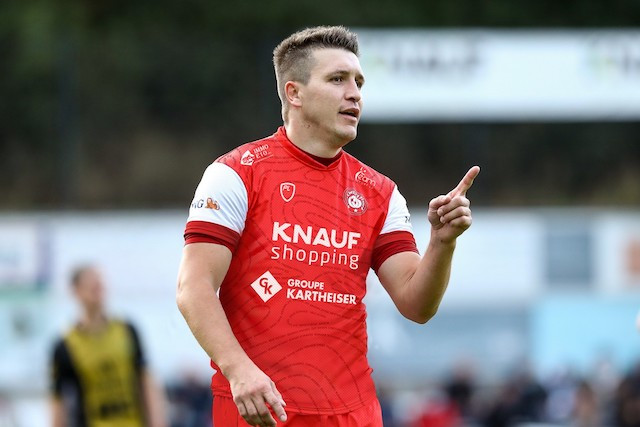“The greenest jersey in the world,” says Michaël Schenk, president of the Wiltz football club, describing what his players will wear next season in the BGL League. “In fact, it’s not really me saying that. That's just what the company that makes it calls it,” he says.
The company in question is called PlayerLayer and also makes the jersey for the Forest Green Rovers club, the benchmark in terms of sustainability in football. Because even if this team from Gloucestershire plays only in League Two, the fourth tier of English football, it has been recognised by international federation Fifa as being “the greenest club in the world”.
FGR, as it is nicknamed, has distinguished itself in recent years, for example through the installation of solar panels, a first certified organic lawn fertilised with cow dung, the supply of vegan food or the construction of a 5,000-seat stadium made of wood.
As for the jersey already tested this season by FGR and which Wiltz will be wearing in a few weeks--each one is made of three cups of coffee grounds and five plastic bottles. The composition is sustainable and more breathable than previous shirts made only of recycled plastic.
“We signed a sponsorship agreement with PlayerLayer [for a sum estimated at around €20,000 euros, editor's note],” says Michaël Schenk. “Thanks to that, this British firm ‘gives us’ our two sets of shirts for the first team, some 60 pieces, but also equipment for training, which is made from recycled plastic bottles.”
Marketing & sustainability
English soccer club Forest Green Rovers rarely make sporting headlines but have become unlikely trailblazers for sustainability in sports. The club is now experimenting with a kit made from recycled coffee grounds https://t.co/MImb3B7Rqe pic.twitter.com/AZH9ItzhW9
— Reuters (@Reuters) February 24, 2021
The player jerseys aren’t the only purchase by FC Wiltz 71 from PlayerLayer. With the club celebrating its 50th anniversary this year, a special shirt has been put on sale for supporters, made from bamboo fibre. It is sold for around €70. “But for each of them, we will donate €5 to plant trees in Africa,” says Schenk, for whom these jerseys are only a step in the direction his club wants to take.
In January, Wiltz put in place a nine-point plan to make the club greener.
With a genuine interest in becoming more sustainable comes a dose of marketing. “The two are not incompatible,” says the president of a club which finished the season seventh in Luxembourg’s first league. “On the one hand, it’s important to stand out from other clubs, to become ‘the most responsible in the BGL League’. On the other hand, taking responsibility on the social level seems crucial today, and more than ever.”
The club is in the process of phasing out plastic bottles sold to fans. “We installed water distributors, connected to taps fitted with filters, for use with reusable bottles. We also have an agreement with Volkswagen. At the start of next season, the club’s three cars will be electric,” says Schenk. And in the future, Wiltz would also like to run on renewable energy and is thinking about installing solar panels.
“The goal is to be ready by 2025,” says Schenk. A deadline that the club would like to coincide with participation in the European Cup. If the northerners succeed, then they could become the greenest club to have ever taken part in a European competition.
This story was first published in French on Paperjam. It has been translated and edited for Delano.
